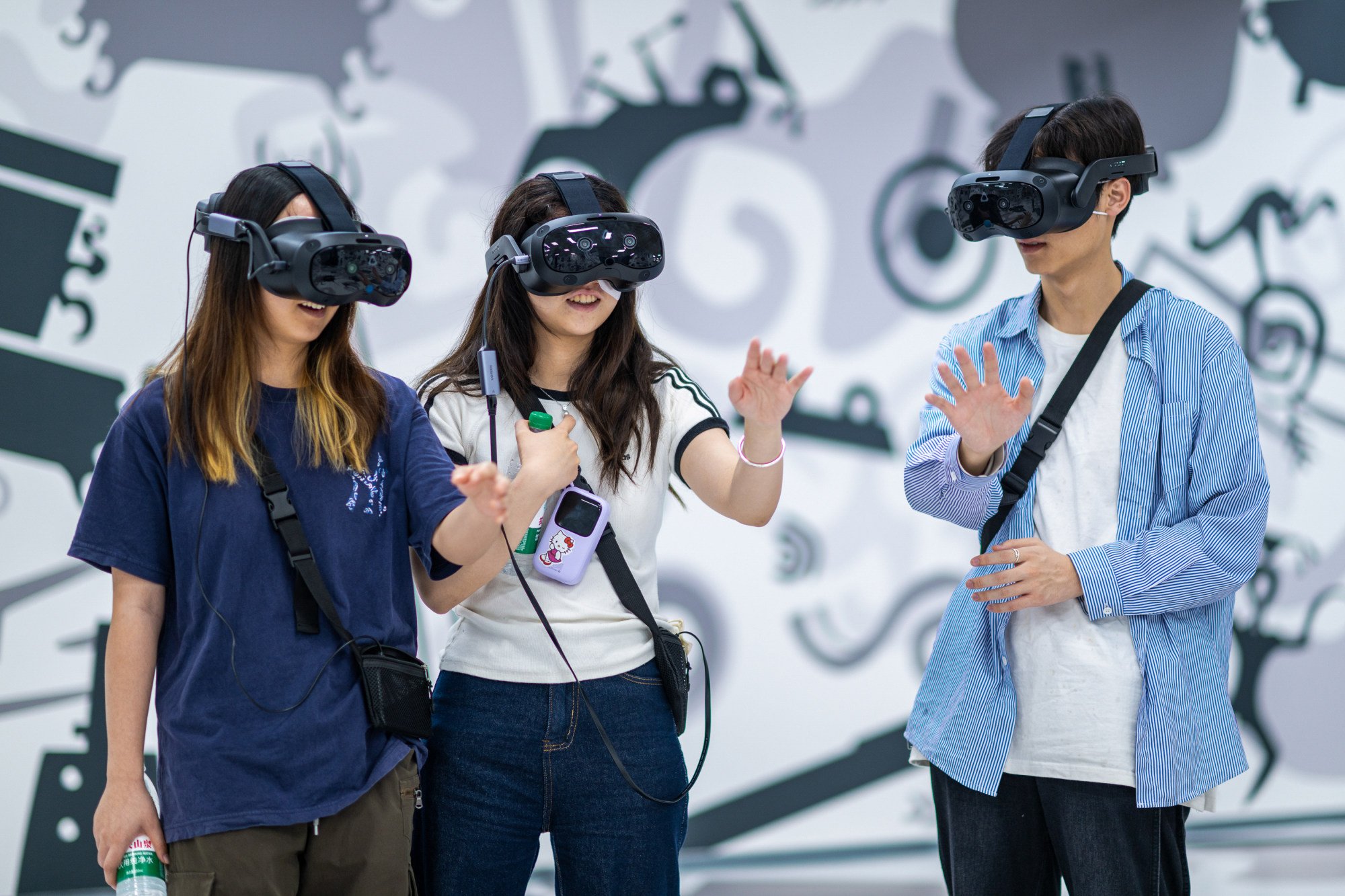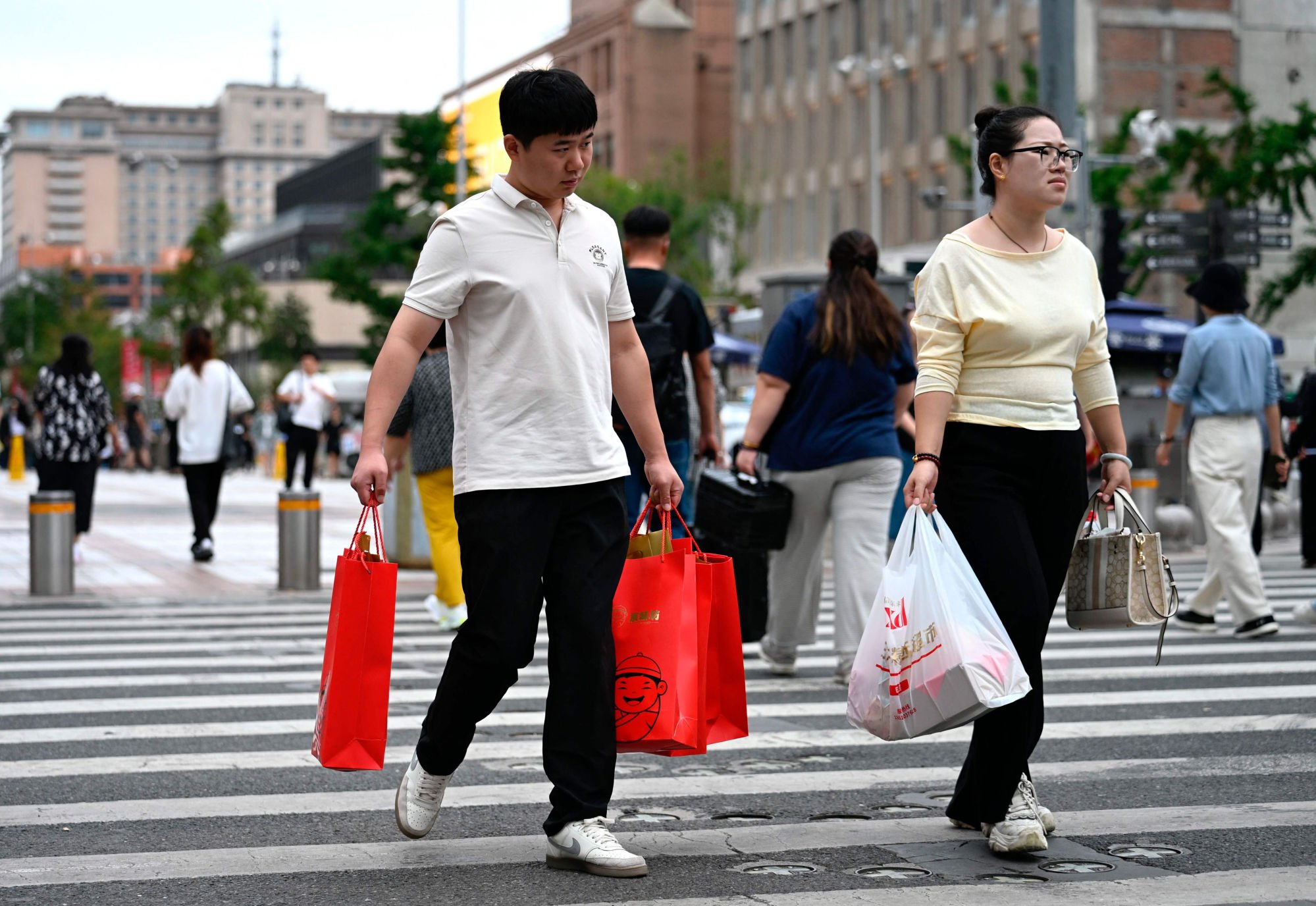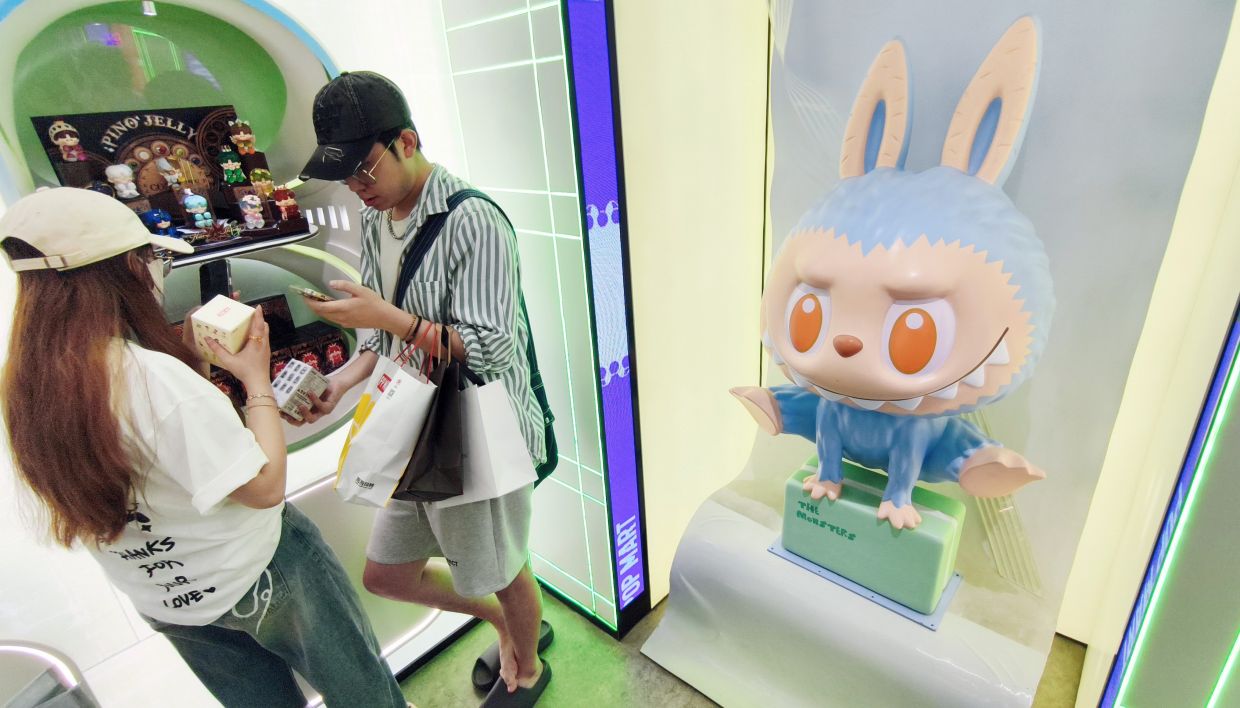Facing fierce competition at school and in the workplace, as well as an uncertain future amid a sluggish economy, China‘s Generation Z consumers have come to see plush toy animals and artificial intelligence companions as essentials.
More than 90% of Chinese consumers born after 1995 recognise the importance of emotional value and seek it in their spending, on everything from plush toys and concerts to physical or virtual companions, according to a recent report by the social media platform Soul App and the Shanghai Youth Research Centre.
The Labubu line of plush toys became explosively popular on the platform in the second quarter of this year, with posts about it increasing by 31.33 times and searches 26.44 times compared to the same period last year. During the same quarter, posts about AI companions surged by 1,894 times year-on-year, and searches on the same topic soared 225,056 times.
Beyond buying physical products like Labubu and scented candles, or experiences like concert tickets or counselling sessions, many Gen Z consumers also pay for companions to go with them when hiking, visiting Disneyland or playing computer games, as well as spending money on virtual pets and lovers.
While one-third shopped for emotional value when they were happy, nearly half did so when they felt unhappy, stressed, under pressure, or lonely, the report said.

Further, 46.8% of Chinese Gen Z consumers believed emotional value was “a good remedy for relieving stress and anxiety,” and 32% saw it as “a driving force in life and a way to keep going”.
Emotion-driven consumption has emerged as one of the core engines of the Gen Z consumer market in China, and its influence continued to grow rapidly, the report said. On average, these consumers spend 949 yuan (RM560 or US$133) a month for this purpose, with 18% willing to spend over 2,000 yuan (RM1,181) a month on it.
“When real-life social interactions fail to provide stable emotional support, young people turn to consumption scenarios in search of emotional substitutes, symbolising products as carriers of emotional attachment and forming the idea that ‘consumption is companionship,’” the report said.
China is also facing a slowing economy, with the property sector experiencing its longest downturn. Chinese households, who have parked most of their wealth over the years in their properties, are seeing the value of their homes shrink. The younger generation is also facing uncertain job prospects, as youth unemployment remains at historically high levels.

In August, China’s unemployment rate among those aged between 16 and 24 was 18.9%, according to the National Bureau of Statistics.
Chinese consumers faced more uncertainty in recent years, so they have sought comfort, validation and self-expression through purchases, shifting from conspicuous consumption to emotional, individuality-driven consumption, said Chris Gao, a consumer research analyst at CLSA in Hong Kong.
“Starting from the pandemic, it has been a structural trend,” she added.
In 2024, Labubu maker Pop Mart reported more than 100% revenue growth and nearly 200% profit growth. This compared with just 3.7% growth in China’s retail sales, a key indicator of household spending, which was less than half the figure in 2019.
Gao said many historical intellectual properties, such as Mickey Mouse in the 1920s in the US, came along during times of complex macroeconomic conditions.
“It’s often at such crossroads that people seek more comfort and well-being through these cultural icons,” she said. “It’s about the emotional value behind the tangible goods.” – South China Morning Post





